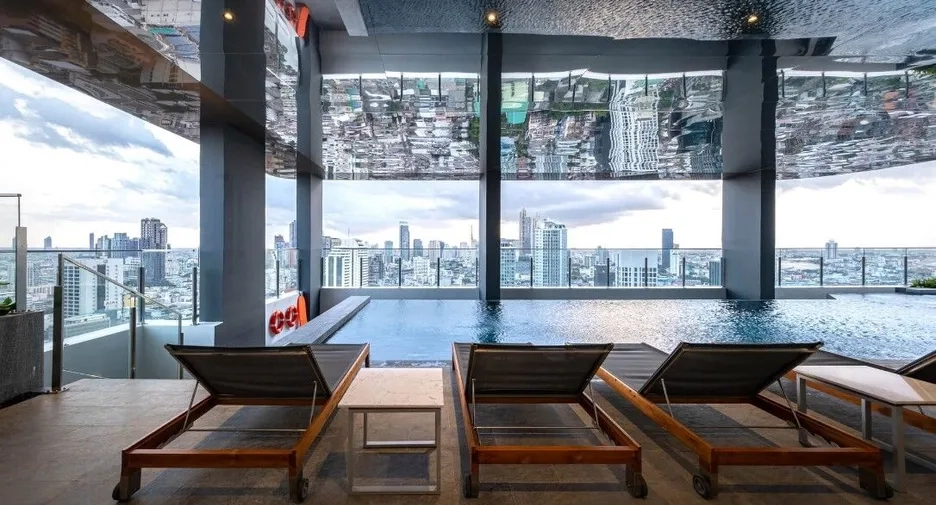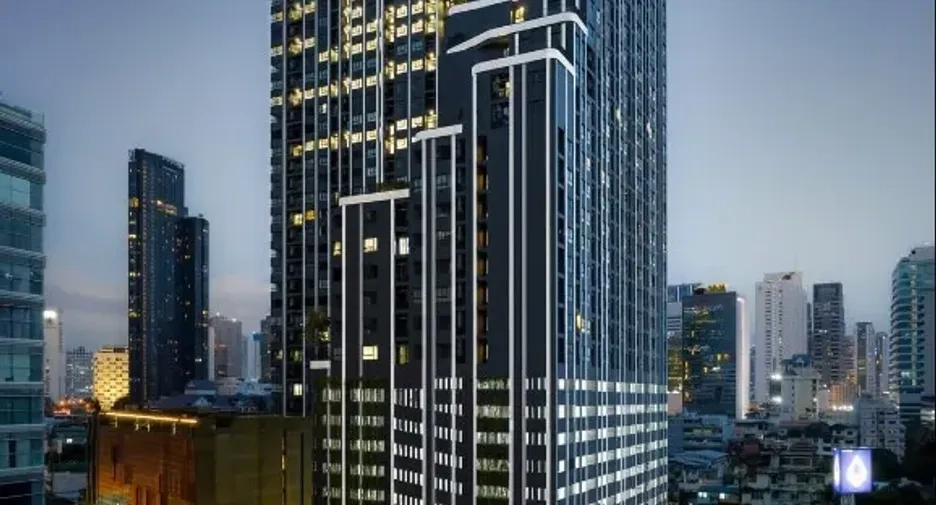Thailand Property Investment continues to attract global buyers seeking stability, steady returns, and lifestyle value. While the S&P 500 has outperformed in pure capital gains, Thailand’s real estate market offers a different kind of ROI — moderate appreciation, healthy rental yields, and the flexibility of personal use. For investors balancing financial growth with quality of life, Thailand property stands as a resilient, income-generating asset that complements traditional portfolios.
Table of Contents
Every investor I speak with is weighing the same trade-offs: where to diversify, how much risk to take, and what role lifestyle should play in the mix. For foreign buyers in Thailand, that last factor is often part of the equation.
I often hear it framed like this: “How does Thai property really stack up? Shouldn’t I just park my money in the S&P 500? What about Bangkok compared to Singapore — isn’t that a more stable market?”
The honest answer: Thailand is not a 10x growth story. But over the past decade, the market has quietly delivered steady returns — the kind of stability that appeals to long-term investors and lifestyle buyers alike.
Important to note: These figures reflect market averages. Some condos doubled in value since C19, others barely moved. Picking well — right location, right developer, right product — is the difference between solid appreciation and a stagnant asset.

The Data Snapshot – Thai Property Growth
Looking strictly at capital appreciation, the numbers are steady rather than spectacular:
- Bangkok Condos: ~98% appreciation over 14 years (≈5% CAGR)
- Thai Landed Homes: ~62% over the same period (≈3.5% CAGR)
On their own, those figures don’t rival equities. But that’s only half the story. For investors who select the right unit in the right location, rental yields can add another 6–8%+ annually in Thai baht — a currency that, despite fluctuations, has held relatively stable compared to many emerging market peers.
The result is a profile of moderate growth with the potential for healthy income streams, provided you’re selective.
Benchmarks for Context
To put Thailand’s growth in perspective, it helps to line it up against other benchmarks:
- S&P 500: ~14% CAGR over the same 14-year period — a clear outperformance in pure capital terms.
- Global property hubs (Singapore, London, Hong Kong): Higher appreciation in select cycles, but often paired with heavy transaction taxes, stamp duties, and sharp corrections.
- Gold: A classic hedge, but inconsistent. Periods of strong gains followed by long plateaus.
Thailand sits in the middle: moderate growth, lower volatility, and a lifestyle premium that global financial assets can’t offer.
It’s also worth noting that Bangkok’s prices have remained relatively stable despite record levels of unsold units — a sign that the “realistic” investable supply is smaller than the headlines suggest. (See: Bangkok Condos: Why “Realistic Supply” is Smaller Than You Think)

The Nuance – Winners vs. Laggards
Thailand is not a uniform market. Returns diverge sharply depending on location, asset type, and timing.
- Winners: Central Bangkok condos along BTS/MRT lines, and select resort markets like Phuket and Samui, where lifestyle demand supports both resale values and rental income.
- Laggards: Outer Bangkok “condo belts” where oversupply of cookie-cutter studios has left resale prices flat for more than a decade.
- Phuket Villas: Attractive for capital appreciation + rental yields, but investors must account for liquidity risk — exits can take time.
While this article focuses on condos and landed property, there is also a niche in land banking. For investors with the right ingredients — long holding horizon, clear zoning, infrastructure tailwinds, and patient capital — strategic land positions can pay off. For most buyers, though, it’s a specialist play rather than a core strategy.
The key takeaway: micro-location, developer credibility, and product fit matter more than national averages.
Beyond Numbers – Lifestyle ROI
For many buyers, the attraction of Thai property isn’t just financial. It’s the blend of capital preservation, yield, and lifestyle use that makes it compelling.
- Expat buyers often see it as a hedge against volatility back home — a stable base in Asia that can double as a second home.
- Global investors note the lower entry price compared to peers like Singapore or Hong Kong, where regulatory costs and barriers to entry are far higher.
- Lifestyle buyers place real value on the ability to use the property themselves, whether for seasonal stays, retirement, or as a bolt-hole in a global portfolio.
Take the case of a European retiree who bought a one-bedroom condo near Asoke in 2012. The unit has appreciated steadily, but the real benefit has been flexibility: six months a year he lives there, six months it’s rented on long-term contracts. The yield offsets his running costs, while the condo doubles as a foothold in Bangkok’s city center — a lifestyle dividend that pure financial assets can’t replicate.
This “dual return” — moderate growth plus personal use — is what gives Thai property its enduring appeal.
Risks & Considerations
No investment comes without risk, and Thai property is no exception. Four factors matter most for foreign buyers:
- Currency exposure: The Thai baht has been relatively stable over the long run, but periods of depreciation against the USD or EUR can erode returns once converted.
- Foreign ownership quota: By law, only 49% of a condominium building can be foreign-owned. Popular projects often sell out their quota quickly, limiting availability.
- Liquidity: Resale timelines can stretch months or even years, particularly outside prime Bangkok or established resort zones. Thai property is not a fast-exit market.
- Oversupply pockets: Certain sub-markets (e.g. Rama IX in Bangkok, secondary beach areas in Phuket) continue to struggle with high vacancy and little price growth.
Mitigation strategies for investors:
- Diversify across currencies or hedge exposure if your home currency is USD/EUR.
- Prioritize foreign quota units in projects with proven rental demand.
- Focus on prime, high-demand micro-locations (BTS-proximate in Bangkok, beachfront or central nodes in resort areas).
- Enter with a medium-to-long hold horizon rather than banking on quick flips.
Selectivity and patience remain the best tools for managing risk in Thailand’s property market.
“If you need to exit quickly, Thailand is not the market for you. Even prime condos can take months to sell — and outside the core, it may be years.”
— Dan Suriya, Bangkok-based property analyst

Takeaway – Framing Thailand’s Role in a Portfolio
Thailand property is not the place to chase equity-level returns. Don’t expect it to outperform the S&P 500 or deliver the kind of 10x stories found in early-stage tech.
What you can expect is stability, moderate appreciation, and meaningful lifestyle upside. For many global investors, that’s enough — a way to diversify into Asia while enjoying the “dual return” of both financial and personal use.
“Think of Thai property less as a speculative trade and more as a lifestyle anchor in your portfolio,” notes Dan Suriya. “If you select carefully — prime location, strong developer, right product — the market has proven it can preserve value while giving you usable benefits along the way.”
In that sense, Thailand works best as a diversified portfolio component. It balances exposure, provides a hedge against home-market volatility, and offers the added dimension of lifestyle value.
For deeper dives, see also:






Join The Discussion